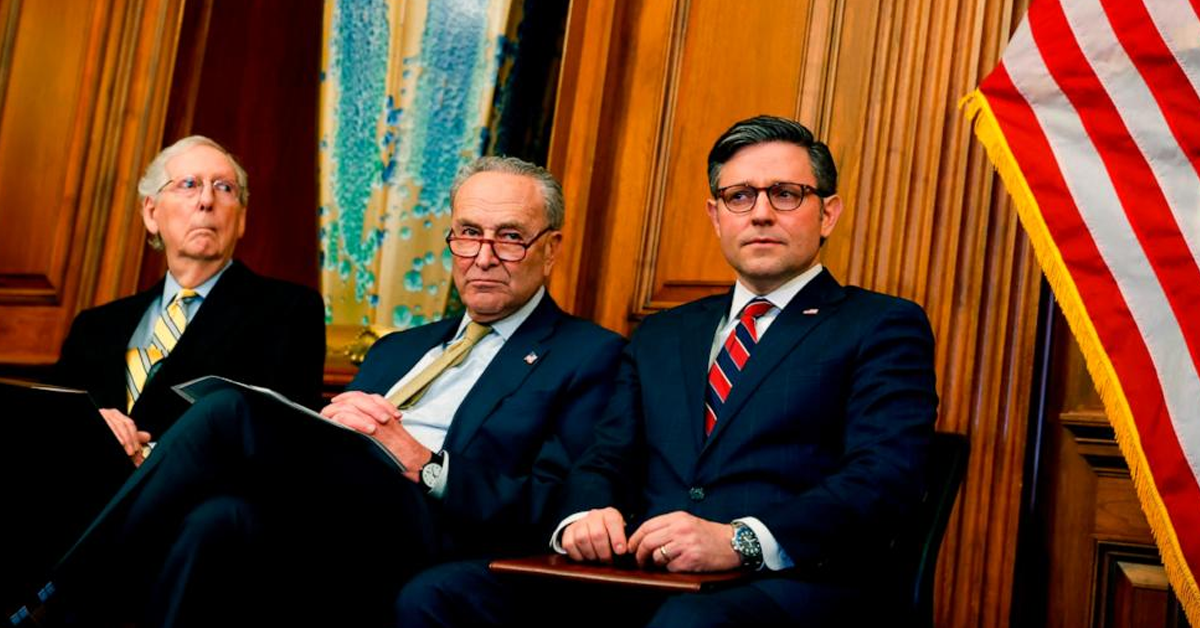Schumer: US Shutdown Looms as Spending Deal Remains Out of Reach
Senate Majority Leader Chuck Schumer recently announced that congressional efforts to finalize a spending package were unsuccessful over the weekend, raising concerns about a potential US government shutdown starting March 2. Schumer expressed disappointment in a letter to colleagues, noting the need for more time due to internal deliberations among House Republicans.
In response to this impasse, President Joe Biden has scheduled a meeting with top congressional leaders at the White House for Tuesday. This meeting aims to prevent the shutdown and secure emergency funding for allies, including Ukraine. Attendees will include House Speaker Mike Johnson, Schumer, Senate Minority Leader Mitch McConnell, and House Minority Leader Hakeem Jeffries.
The focus of the meeting is to reach an agreement on appropriations bills to prevent a disruptive closure of the US government. However, this poses a challenge for Republican leaders who face pressure from conservatives to use the threat of a shutdown as leverage to demand changes in US border and immigration policies.
GOP leaders have also been using emergency funding for Ukraine as a bargaining chip. Despite this, Johnson has indicated a reluctance to pursue a shutdown, preferring a compromise to achieve a spending deal.
The immediate concern is to secure funding for critical departments like Agriculture, Transportation, Housing and Urban Development, Veterans Affairs, and Energy, along with the Food and Drug Administration. These agencies currently rely on a temporary funding measure expiring on March 1, while other government sectors face a March 8 deadline.
Schumer blamed the deadlock on “extreme” Republicans and the influence of former President Donald Trump. He urged Johnson to bring a Senate-passed emergency national-security funding bill to a House vote, confident in its bipartisan support.
Schumer highlighted the importance of this funding in the context of Russian President Vladimir Putin’s actions in Ukraine. In contrast, Johnson criticized Schumer’s approach, affirming the House’s commitment to finding a compromise before the deadlines and emphasizing the need to address US border security.
The negotiation of bills involving the Justice Department and Homeland Security Department is particularly challenging due to controversies surrounding Trump’s prosecutions and asylum policies. These talks are crucial as a 1% budget cut to all agencies is scheduled if stopgap funding is in place by April 30.
Amidst these negotiations, Congress also faces a deadlock over aid to Ukraine and Israel, linked by House Republicans to border security policies. A bipartisan group of House lawmakers proposed a $66.3 billion foreign aid package in mid-February, including policies for asylum seekers at the US-Mexico border. Pennsylvania Republican Brian Fitzpatrick, who introduced the bill, emphasized its significance for global security.











